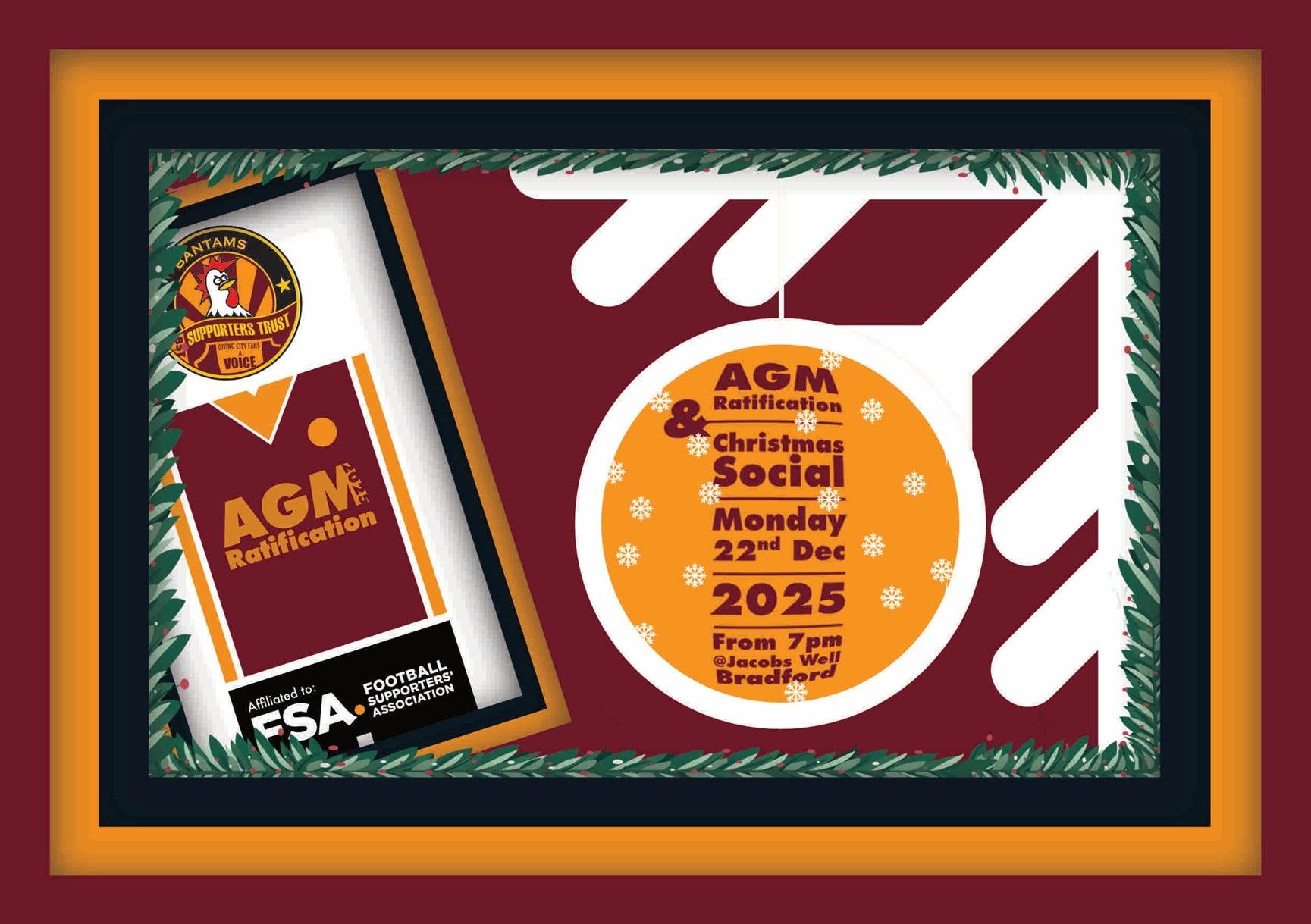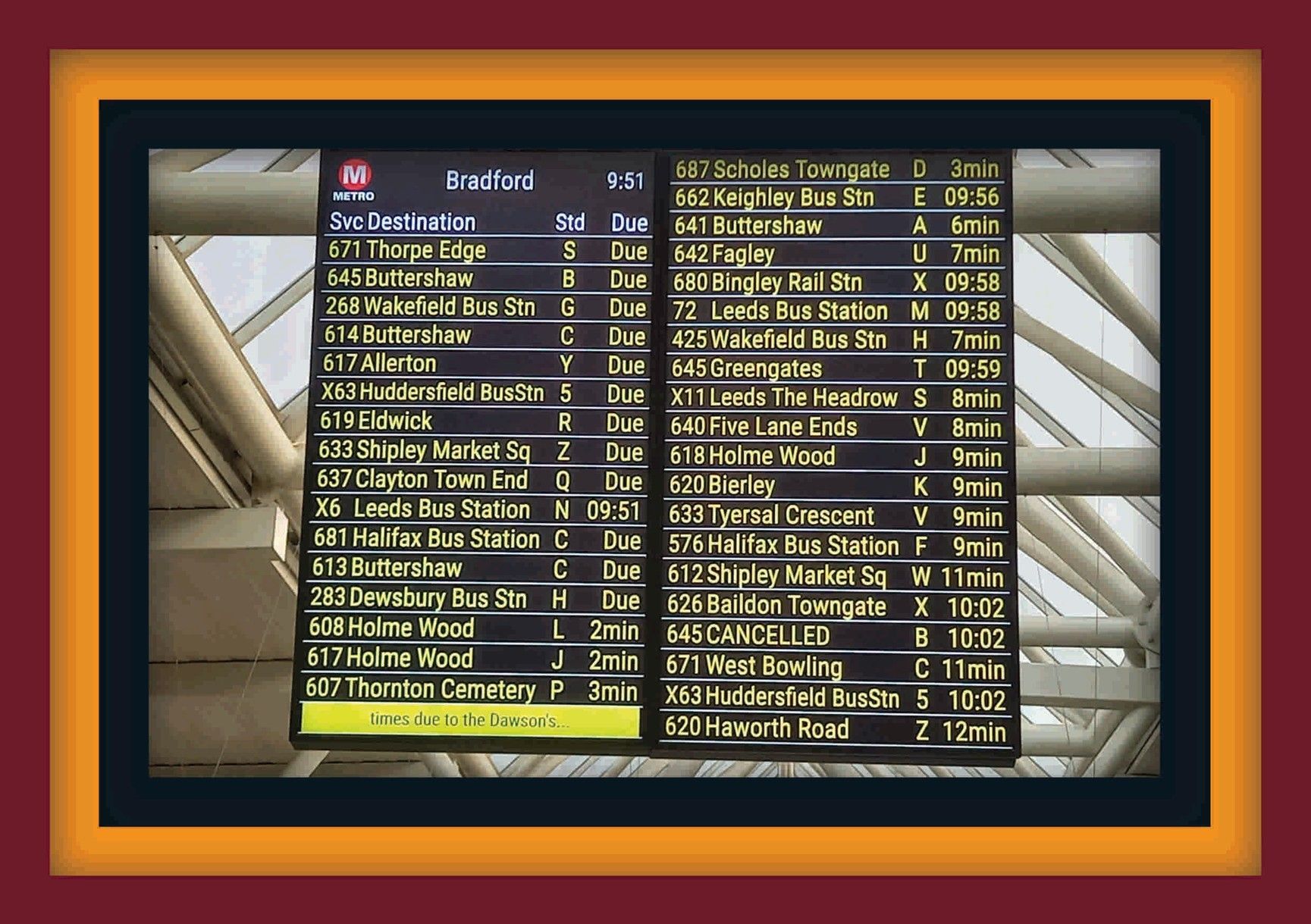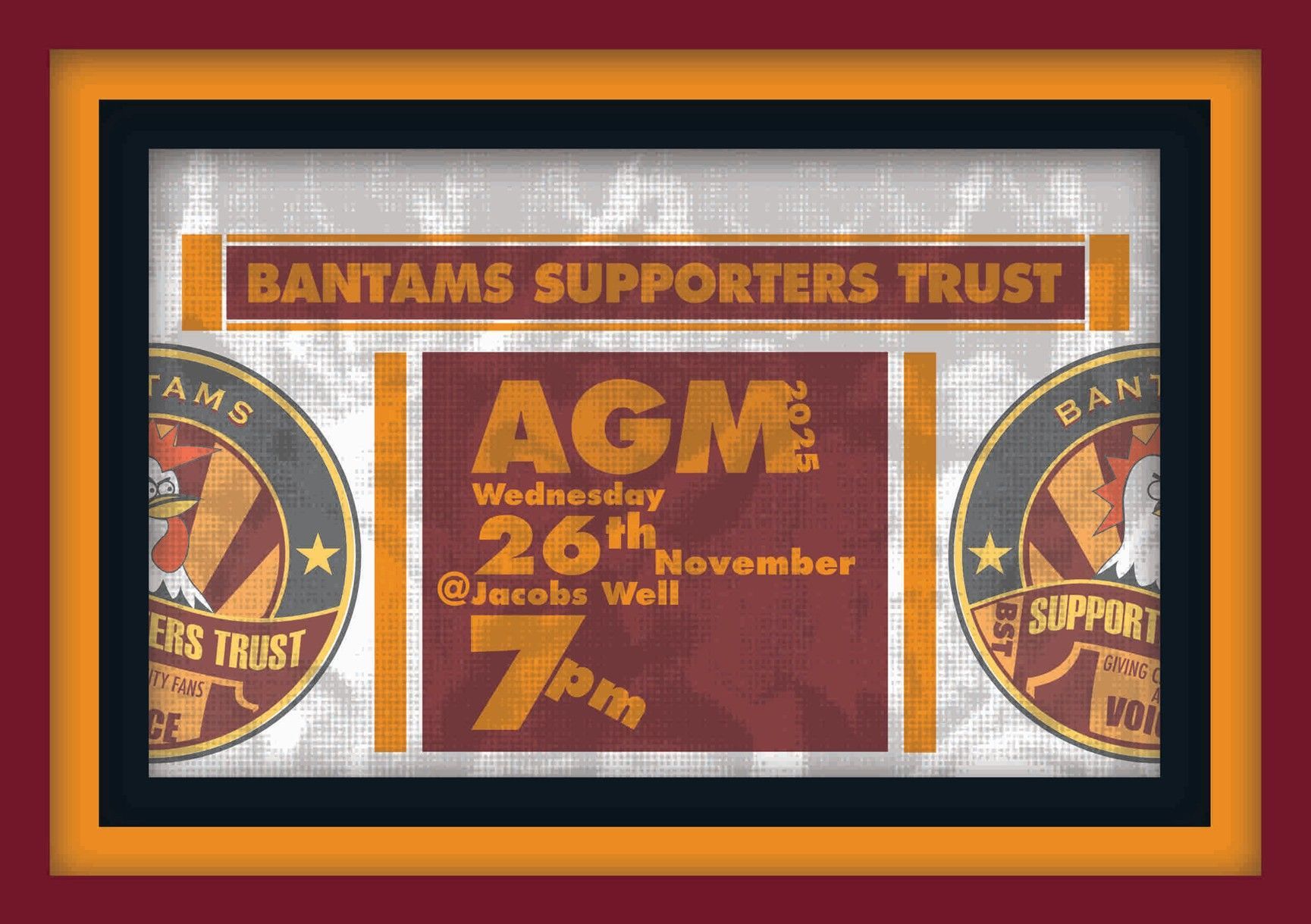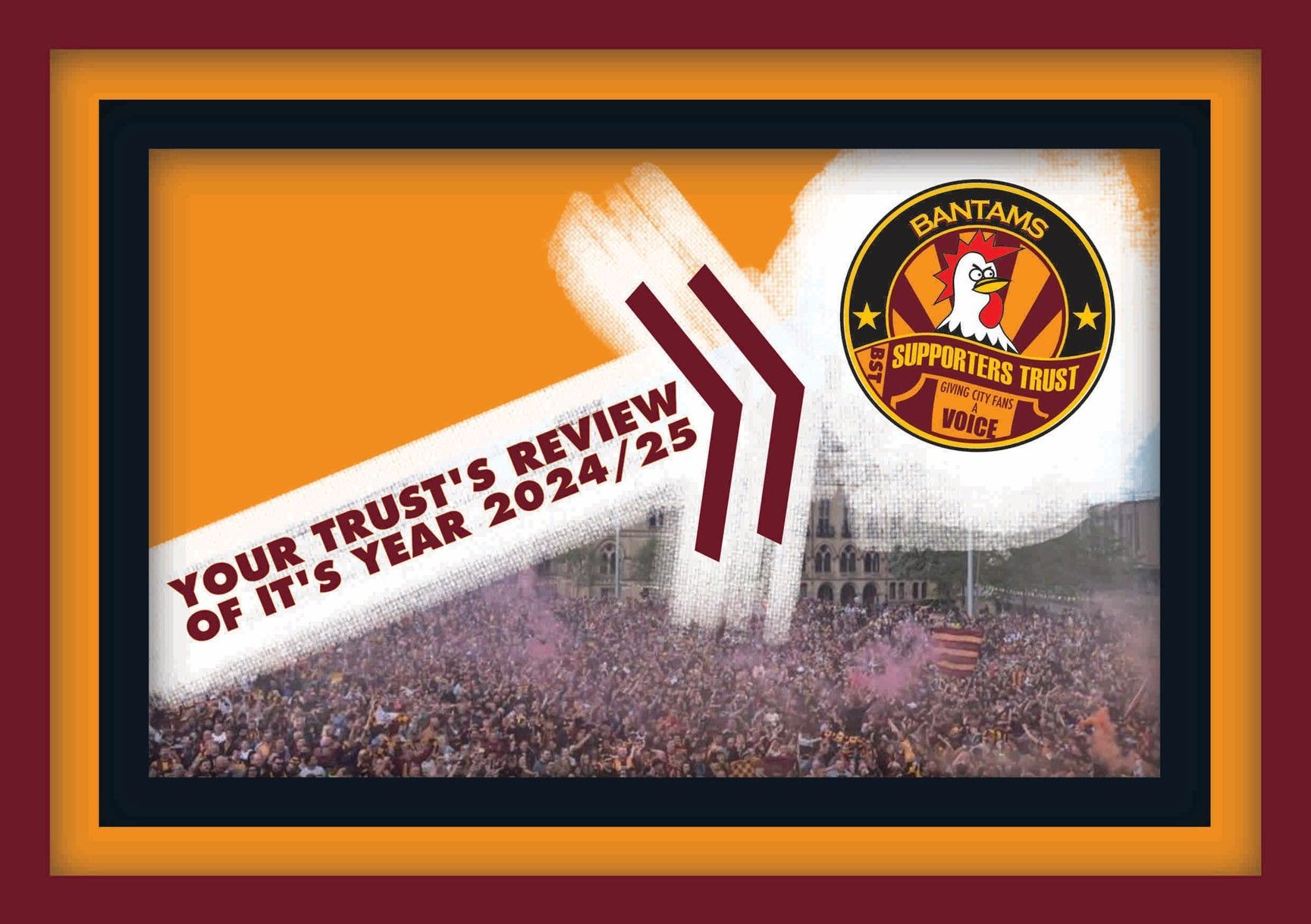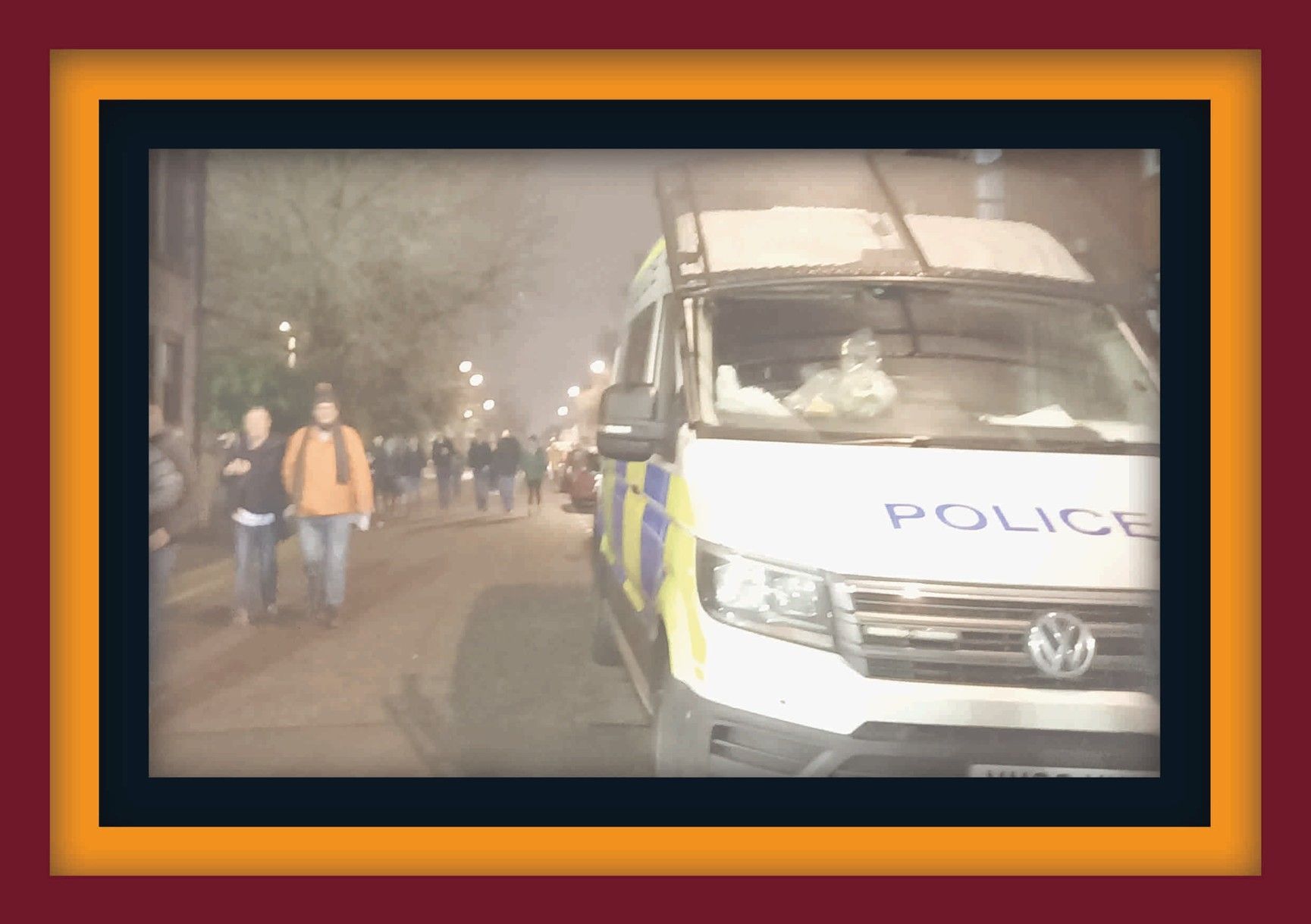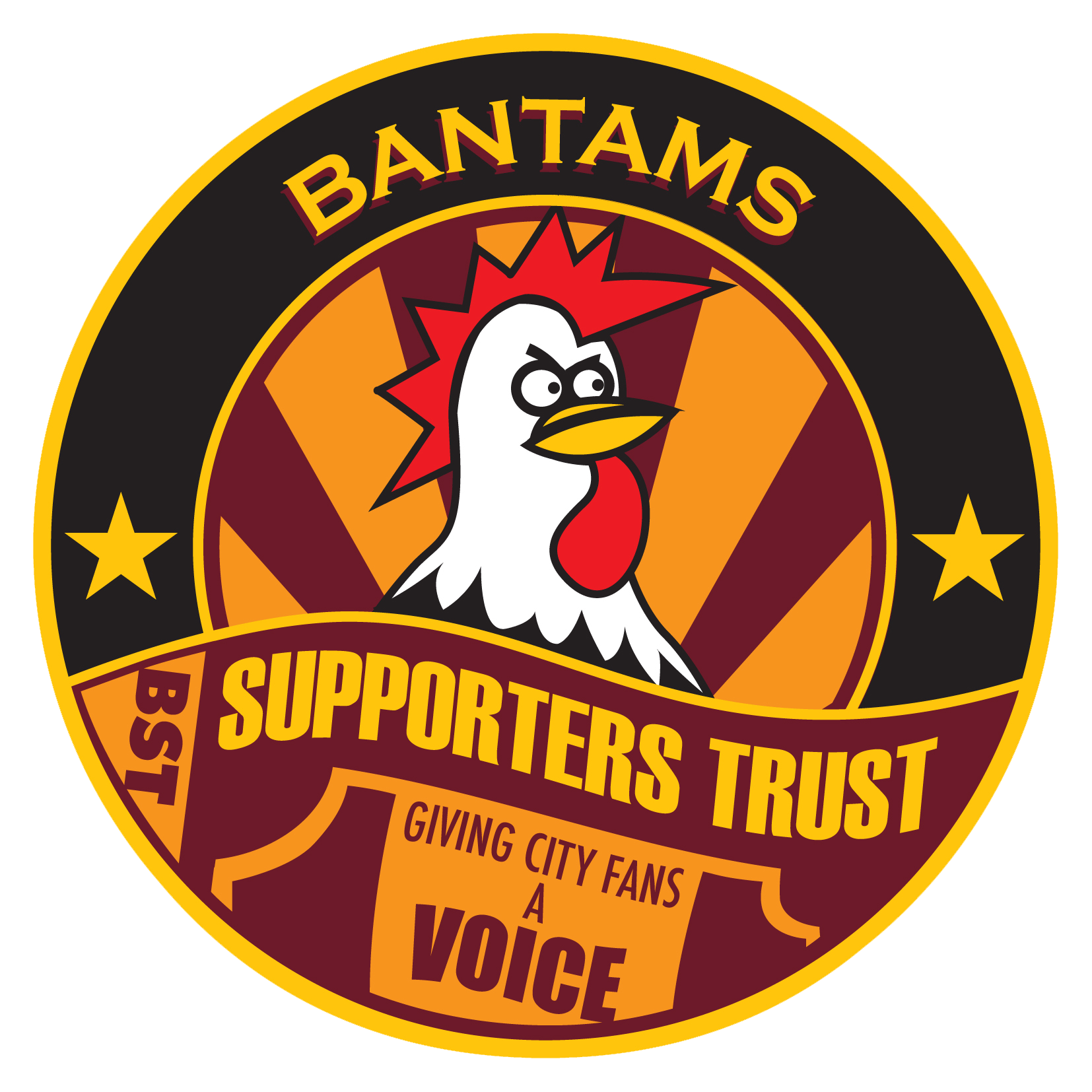What Happens to the Bill after the General election? Part 1
With the general election now called for the 4th July, the Football Governance Bill, which has had 2 readings in parliament already, will not have time to go through the final Committee stage during this parliament.
However, all is not lost, as there is cross-party support and the Football Supporters Association (FSA) to which Bantams Supporters Trust is affiliated to, has launched an open letter to the political parties appealing for their commitment to the bill in their manifesto’s should they win the election. The letter is co-signed by Kevin Miles, CEO of the FSA, and Tracey Crouch, the Chair and author of the Fan-led Review.
The letter also has more than 200 FSA member supporters’ group signatories including Bantams Supporters Trust.
You can see the full letter and signatories here.
Concerns about the Bill after the general election and proffered by the PL
The Guardian, 23rd May says that, “There remains uncertainty, however, over whether an incoming government would pick up the bill as it is or seek to redraft it. This could lead to another extended period of lobbying by football stakeholders, and further delay the introduction of a regulator.”
And the Premier League (PL) clubs cannot agree a distribution package to the EFL and cannot agree with the EFL regarding the regulator’s proposed backstop powers to enforce financial redistribution from the top flight down the pyramid.
The Football Governance Bill – an opportunity for the Premier League, not a threat
The PL, who are not entirely on board with the Football Governance Bill, have called it a threat to a successful British business, when in fact the PL could help bring about an improved healthier competition throughout the whole pyramid with a significantly better financial redistribution process. And as well as the wider improvements the Bill can bring to the PL, it will improve it as a business.
The PL’s income is already far ahead of the top divisions in Germany, Spain, Italy and France. According to Deloitte forecasts, Premier League revenues in
2023/24 will be €3.2bn ahead of its nearest competitor, Germany’s Bundesliga.
Deloitte 2023/24 projections (Annual Review of Football Finance 2023):
1. Premier League - £6.66bn*
2. Bundesliga - £3.45bn
3. LaLiga - £3.4bn
4. Serie A - £2.45bn
5. Ligue 1 - £2.05bn
It would take a failure of spectacular proportions for this commercial dominance to be lost, and that failure will not come a result of improvements to governance that have been carefully thought through by MPs, fan organisations and clubs at all levels of the game.
The huge income of the PL is offset by massive financial losses, due to a lack of financial constraints. The latest financial returns show combined annual losses by PL clubs exceeding £1bn – all while paying players and agents a combined £4.4bn.
*New reports indicate the latest Premier League club accounts showing revenue as £6.1bn.
Championship club owners, gambling to earn a share of the riches at the top of the game, delivered annual losses for their clubs of £400m. The dreadful lack of financial controls in the game has led over the years to significant numbers of insolvencies.
Since the PL was formed in 1992, 64 English league clubs have gone into administration or been liquidated.
What does success look like?
The PL is an enormous cultural success generating enormous global interest as its clubs collect the biggest prizes in football and create fantastic sporting moments. But is that the only measure of success and how sustainable is that success for every member club and every other club trying to be a member? How does the vast commercial gap between the PL and the rest of English football affect the strength and sustainability of the whole game?
How is success defined?
Is success a club like Nottingham Forest spending more on players in one summer transfer window than it had previously spent in its entire 157-year history?
Is success Everton making losses that broke the Premier League’s own rules three seasons in a row? Is success Crystal Palace going bust, twice, to clear debts? Is success Brighton and Hove Albion, a club often cited as an example of what good management can achieve, being one of the most indebted in football and sustained by the huge generosity of a single owner via a £373m interest free loan? Bolton Wanderers and Derby County show how quickly that approach can go wrong.
One problem the PL does not acknowledge is that its success incentivises its own clubs to take desperate measures to stay in it, while EFL clubs take desperate measures trying to get into it – all because of the enormous disparity in income between Premier League and EFL clubs.
It has even distorted the commercial market and the competitive playing field by introducing a special system that recognises this - so-called ‘parachute payments’ to clubs who are relegated from the Premier League. These payments are made over a three-year period to help relegated clubs bridge the income gap they experience when dropping out of the top division. But the very existence of that system is an admission of commercial weakness. And it distorts competition, because clubs not receiving payments must deal with the realities created by clubs that are.
Parachute payments or trampoline payments?
While we have referred to them as parachute payments there is no doubt they act as trampoline payments – giving relegated teams a huge advantage over other Championship clubs. The threat to football’s competitive balance is that the same handful of clubs could repeatedly be promoted to, and relegated from, the PL – creating a de facto closed shop league.
The recent offer proposed by the Premier League to the EFL would allow relegated clubs to spend 85% of their revenue on wages while other clubs in the Championship would be limited to 70%. Clubs in the 85% band already receive more revenue and would be allowed to spend a higher percentage of that revenue. EFL chairman Rick Parry said this would equate to a budget of around £110m for relegated teams while the EFL was bound to restrict EFL clubs to a £20m budget. This cliff edge must be removed and revenues spread more equitably through the game.
Of course, some clubs will always be more financially healthy than others, and so be able to spend more, but the game should not put systems in place that widen the financial gap, nor encourage reckless behaviour in the name of fair competition. The very existence of parachute payments is an admission of failure – the free market that so many in football argue should be left to run naturally needs intervention because otherwise clubs would go out of business. The answer is to address the distortion of the market at root, not seek to mitigate by distorting it further.
The Football Governance Bill could do this, but the PL is insisting parachute payments should be beyond the new regulator’s remit, and the Bill as it currently stands entrenches that position (Clause 55). One of the Bill’s key objectives is “to protect and promote the financial resilience of English football”. How can it hope to deliver on this if it is unable to address what is widely considered to be the one element which distorts the football pyramid more than any other? That clause should be removed, and we ask for your support for an amendment that does so.
England’s unique football ecosystem
The PL deserves credit for funding community projects and for “solidarity” payments to the EFL, National League (NL) and women’s game – that solidarity principle is now well established, and we believe they can go further. The PL’s success is based on a football ecosystem that extends deep into our communities and our culture. No other country attracts 38,000 supporters to a fifth tier play-off final as the NL did last season.
The chance that any club can rise through the system to achieve the top prize is central to our game, and tens of thousands of fans showed how much they valued that when they showed their anger at the plans by the top six PL clubs to break away into a European Super League. That attempt could have destroyed the English game, but instead it sparked the fan-led review, which led to the Football Governance Bill and a potential new lease of life for football.
Clubs throughout the league develop players and coaching staff that PL clubs recruit. The game, our national game, is embedded in the nation’s psyche and loved by so many because it is played at so many levels from Sunday league youth games right up to elite level. That is what generates the loyalty and the passion that makes football such a lucrative and successful business.
Left unchecked, the PL club owners will destroy the fertile ground that nurtures its roots. And that is more of a commercial threat than a Bill that seeks, as the PL admits, to embed more normal business practices in the game. The PL sees the Bill as a threat because it sees the money its clubs have as PL money. But it is not. It is football money, generated by this national game of ours.
Facts and figures
Recent media stories reporting that the PL would pay £106m to fund a regulator have been jumped upon by opponents trying to portray this as an unaffordable cost. But let’s put the figure into context. That’s £106m across 10 years, equating to £10.6m per season, or £530,000 per club. Club sources tell the FSA the Premier League currently spends more than £20m per annum on legal and governance – twice as much as what a regulator would cost.
Let’s look at some more facts and figures to put regulator costs into perspective:
· £400m spent by Premier League clubs on agent fees in one year.
· £4bn spent on player wages during 2022/23 with a median wage of £70,800p/w.
· £3bn spent on player purchases, up by 57%, with £979m recouped on sales.
· £9.4bn total squad purchase costs.
· £54m spent across all clubs on director and executive staff pay.
· £3m bonus for Spurs chairman Daniel Levy – rewarded in the aftermath of 2022/23 when the club’s pre-tax loss increased from £61m to £95m, despite competing in the Champions League. Fortunately for the club Levy’s bonus will be covered “thanks” to an increase in season ticket prices and the phased withdrawal of concessionary rates.
· Parachute payments fact #1: Between 2019-22 the PL shared £887m via what it terms “core funding” - but £663m of this went to relegated clubs via parachute payments. That is 75% of the total given to the Championship as a whole. A small group of recently relegated clubs get most of the money leading to competitive imbalance.
· Parachute payments fact #2: The PL shared £97.3m with League One and League Two teams across three seasons (2019-22). PL clubs have spent more than four times that amount (£400m) on agents fees since February 2023. £97.3m across three seasons equates to an average of £675,000 per club, per season.
· Parachute payment fact #3: The EFL argues that instead of parachute payments there should be a solidarity fund combining the Premier League and EFL media incomes with 25% of that being awarded to EFL clubs. This would lower the cliff edge and be less likely to encourage risky financial behaviours by those desperate to claim a top-flight slot.
Premier League: A threat to itself?
We’ve explained how the commercial model the Premier League has created is storing up problems that can threaten clubs. But so are the Premier League’s attempts to regulate the financial monster it has created. It took 22 years for the Premier League to introduce a set of profit and sustainability rules for its clubs to follow. The clubs themselves voted for those rules, but some found they had to break them to try and compete in the distorted landscape the PL has created. So the Premier League had to punish them.
But the League’s belated attempt to regulate itself has resulted in a bungled process that is opaque, contradictory and which has failed to gain the confidence of fans. This is damaging the integrity of the brand, as people question why and how points are won and lost, with many supporters arguing that not all clubs are treated equally.
An independent regulator can restore faith by introducing clear rules and a clear regime of governance. That is the sort of system that has enabled many other industries to gain confidence from investors and consumers that has driven success.
Far from being a threat, the Football Governance Bill protects and strengthens a great British success story.
We will write a further article (Part 2) with a view to seeking amendments to clarity within the Bill as to how it looks at present. This will give an idea to members what work still needs to be done.

